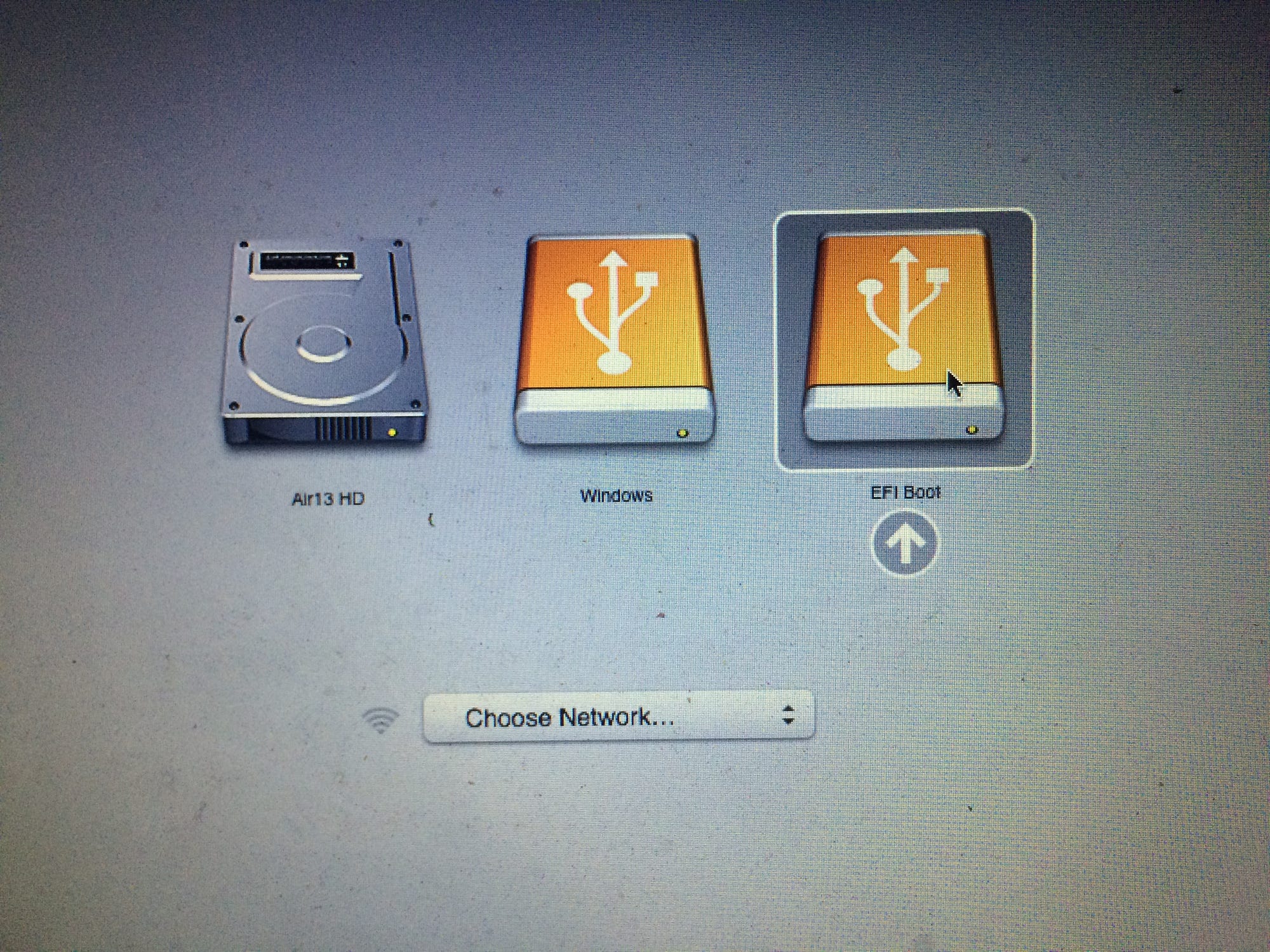We use cookies for various purposes including analytics. By continuing to use Pastebin, you agree to our use of cookies as described in the Cookies Policy. OK, I Understand.
Hi, I've been trying to get rEFInd to detect and boot a 32bit Ubuntu kernel on 64bit hardware (from an external USB hard drive attached to a Apple Mac Mini). I've succeeded doing exactly this with a 64bit kernel. I've set up refind_linux.conf (which is at the root of the hfs+ 'boot' partition and other rEFInd files (which are in System/Library/CoreServices in the 'boot' partition) according to instructions for using Linux' efi stub loader capability. I've blessed the bootx64.efi file, so rEFInd can be chosen after holding the option key during bootup. I should mention that the rEFInd choice that appears for this 32bit kernel is the one specified in a manual stanza in the refind.conf file. Even though I've enabled scan_all_linux_kernels and properly set up refind_linux.conf, those choices don't show up.
Vmware fusion vs parallels for mac. For starters, I’m concerned only with conventional business apps—I don’t use virtualization for gaming, 3D graphics, or anything else that would tax virtual processors or graphics cards. That means I’m not going to nitpick about the small differences in performance that might exist between one tool and the next.

After the rEFInd menu appears and I click on the selection for the 32bit kernel, action stops with an error: Invalid loader file! Error: Not Found while loading vmlinuz-3.8.0-30-generic Any ideas? Super Grub 2 doesn't seem to have a problem booting up this 32bit kernel on my 64bit hardware. Take care, dgktkr. EFI runs binaries for a single architecture. That is, an IA-32 (32-bit x86) EFI will run only IA-32 binaries, an X64 (64-bit x86-64) EFI will run only X64 binaries, and so on. The EFI stub loader in the Linux kernel is a binary of the same type as the kernel itself -- a 32-bit kernel has an IA-32 EFI stub loader, a 64-bit kernel has an X64 EFI stub kernel, and so on.
Thus, it's impossible to run a 32-bit kernel on a 64-bit EFI when using the EFI stub loader. GRUB 2 works because it's not using the EFI stub loader; it's loading the kernel in other ways that don't rely on the EFI stub loader. For your purposes, it's best to either stick to a 64-bit kernel on your 64-bit EFI or use GRUB 2 or some other boot loader rather than use the EFI stub loader. Best simulation games for mac on steam. Hi Rod, Something similar to the above but the reverse: 32 bit EFI implementation and 64 bit kernel: I have a Core2 Duo Macbook that only has a 32 bit implementation of EFI. (I'm trying to set it up for my daughter to use - Linux Mint, it will be Linux only).
Currently, the new SSD disk has a GPT partition table. I have managed to install rEFInd on the ESP from OS X running in an external enclosure.
REFInd supports booting the 64bit Mint installer ISO from a memory stick (this FAT32 formatted memory stick uses 'ISO-2-USB EFI-Booter for Mac' to boot the ISO image), and can install the OS but not GRUB. I have tried following the rEFInd instructions to copy /boot and the kernel files to the ESP partition (FAT32), but these kernels are not presented as bootable options by rEFInd which, even though it is set to scan it isn't picking them up (note too that the rEFInd 32 bit ext4 driver is installed too). Is that because they are 64 bit kernels and I am having to run a 32 bit rEFInd? REFInd is not showing any boot options for the SSD. If I somehow manage to install a 32 bit EFI GRUB, perhaps by retrying with a 32 bit mint installer, will rEFInd automatically detect it?